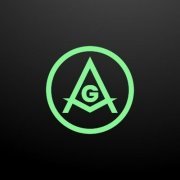In the near future, Alpha Guilty plans to develop a full-fledged DAO governance system for its platform. Today, we decided to explain what DAO is, why it’s important for the community, and how it will look on Alpha Guilty.
A decentralized autonomous organization (DAO) is a member-owned community without centralized leadership but with specific program rules encoded on a blockchain. The key idea is that DAO runs entirely autonomously, although users have voting power in some procedures. This allows DAO members to transact safely while maintaining data integrity and security.
Unlike conditional transactional programs, which are often maintained by firms with profit motives, DAOs are fully owned by their users. They should hold special tokens or NFTs that allow them to govern. Governance is conducted through a series of proposals that members vote on through the blockchain.
There are various DAO governance models: ConstitutionDAO, Ethereum Name Service (ENS) DAO, and Friends With Benefits DAO, just to name some. Each one is unique and responds to the needs of a specific community. The same can be said for the future Alpha Guilty’s DAO.
Alpha Guilty (previously CPAD) has been a user-governed platform from the start. We now see the need to enhance the community’s role in all important processes.
According to Alpha Guilty’s roadmap, the new DAO governance system will be developed and implemented in 2023 after building up the required infrastructure and rules. The platform has already issued ALPHAG tokens that will give their owners governance rights.
